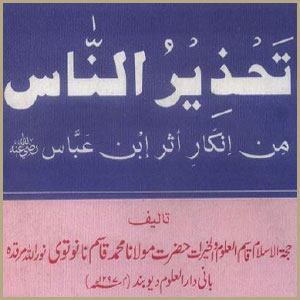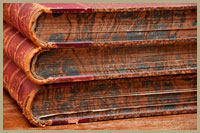
Specific Areas of Research
Developing “Bridge” between Fundamental Islamic Religious Ideology of Deoband and Other Cultures and Societies
 This/Theses research project(s) at DIIT is/are aimed to concentrate on the transformations in culture and society in the context of contemporary global changes and with effect of religious Ideologies. Since Deobandi ideology is one of the most dominant religious ideologies it needs to be analyzed from its bases. The bases of this ideology are the writings of its founder and the early generation of the Ulama. This literature is huge and at present time is in recondite condition. This literature is highly responsible for a process of Islamic resurgence and ideological revival especially in India, Pakistan, Afghanistan and Bangladesh. It has major effects also on European-American Muslims. For creating an atmosphere of mutual coexistence and harmony between two different societies an understanding of the two cultures and societies is inevitable within the context of their ideas and ideologies.
This/Theses research project(s) at DIIT is/are aimed to concentrate on the transformations in culture and society in the context of contemporary global changes and with effect of religious Ideologies. Since Deobandi ideology is one of the most dominant religious ideologies it needs to be analyzed from its bases. The bases of this ideology are the writings of its founder and the early generation of the Ulama. This literature is huge and at present time is in recondite condition. This literature is highly responsible for a process of Islamic resurgence and ideological revival especially in India, Pakistan, Afghanistan and Bangladesh. It has major effects also on European-American Muslims. For creating an atmosphere of mutual coexistence and harmony between two different societies an understanding of the two cultures and societies is inevitable within the context of their ideas and ideologies.
This area of research is designed around an integrated program as a bridge between Fundamental Islamic religious ideology of Deoband and research themes of other Cultures and Societies, which comprise of Intercultural Dialogue and Transnational Culture; western modernity, Cultural Economy and Globalisation ; Islamic and Western Heritage.
The above research areas are genuinely sophisticated in relation to the introduction of a huge and broad area of study in Islamic, religious, cultural and social studies. It shall provide very substantial opportunity to the scholars, academicians, researchers and students for coming forward towards such an area in integrated fields of different studies, which has cognitive impacts on world’s largest Muslim society residing in Indo-Pak subcontinent.
Development of Contemporary and Modern Indian Islamic Thoughts
 Contemporary and Modern Indian Islamic Thought is a research project for focusing on the development of Islamic religious thoughts in contemporary India. The processes and circumstances in which it is appearing in the context both of the history of Islamic religious thought and of contemporary developments in Islamic thinking. This project eventually will evaluate it as a response to the growing threats of Hindu extremism and its challenges to the Muslims.
Contemporary and Modern Indian Islamic Thought is a research project for focusing on the development of Islamic religious thoughts in contemporary India. The processes and circumstances in which it is appearing in the context both of the history of Islamic religious thought and of contemporary developments in Islamic thinking. This project eventually will evaluate it as a response to the growing threats of Hindu extremism and its challenges to the Muslims.
This research area will also provide platform to the common Muslims for restructuring the social, political and anthropologic fabrics of Indian Muslim society by taking in account the paradigms from the Islamic intellectual heritage developed during the great Islamic civilization of India.
News & Updates
Scholarships
Contact Us
e-mail : info@islamicthought.edu.in









